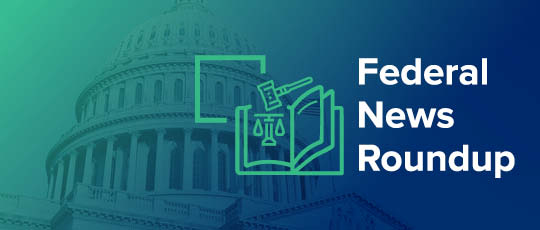- No federal movement on the horizon. Establishing a $15 federal minimum wage has been a key part of President Joe Biden’s labor agenda since he took office in January 2021, but efforts to do so remain stalled. Experts say that a significant increase is unlikely to happen anytime soon.
- Getting a raise. Verizon recently raised the minimum wage for some workers, increasing salaries to $20 an hour for new Verizon employees in customer service and $20 an hour (when base salary plus target commission are combined) for those in retail and inside sales.
- Seeing a trend. Experts anticipate that more employers will follow the lead of companies like Verizon, advancing the minimum wage to $15 and beyond for their workers, as a way to attract and retain talent, and to stay competitive in a tight labor market.
Establishing a $15 federal minimum wage has been a key component of President Joe Biden’s labor agenda since he took office in January 2021. But the prospects of a $15 minimum becoming a reality are uncertain at best.
Democrats in the House and Senate reintroduced the Raise the Wage Act within a week of President Biden being sworn in. The bill aims to gradually raise the national minimum wage to $15 by the year 2025, linking future increases to median wage growth.
Republican support for the legislation has been virtually non-existent, however. And, Democrats’ razor-thin Senate majority leaves them without the necessary votes to get the bill to the finish line as stand-alone legislation.
So, for now, the federally mandated minimum wage remains at $7.25 an hour. And, given the current rate of progress, it might take a long time (and a lot more political posturing) before we see a meaningful increase.
Of course, some big-name organizations have already decided they’re not waiting around.
For example, Walmart and Costco upped the average hourly wage for their workers to $15. Best Buy has done the same. Target has raised the starting pay for some roles to as much as $24 an hour.
Verizon is the latest big-name company to join the ranks.
In an effort to recognize “the hard work and dedication of its V Teamers,” Verizon is raising the minimum wage to $20 an hour for new employees in customer service and $20 an hour (when base salary plus target commission are combined) for retail and inside sales employees, according to a statement from the New York-based wireless network operator.
Existing employees on any of these teams who currently receive less than $20 an hour will be raised to this new rate automatically, according to Verizon, which is also adding premium pay differentials for assistant managers who work on holidays, Sundays and for those who are bilingual.
“Our V Teamers give their best day in and day out to support our customers with all of their needs, which is why we want to make sure we support them as well,” said Krista Bourne, Verizon Consumer Group’s chief operating officer, in an April 18 statement announcing the increase. “These changes are the direct result of employee feedback and will help us remain an attractive employer in this competitive environment.”
In addition to the announced starting wage increases, Verizon is also offering a sign-on bonus for retail specialist and assistant manager roles in many markets the company serves around the United States.
The federal minimum wage has not gone up since 2009, as Kevin Talbot, area president of Gallagher’s HR consulting practice, points out.
“We are in the longest stretch without an increase since a federal minimum wage was mandated,” he said. “However, the law does not provide a mechanism for adjusting the minimum wage. Any increase has to be enacted by Congress, a step which, to date, has remained elusive.”
A 2021 executive order enacted a $15 minimum wage for federal contractors. But, competing priorities in Congress — supply chain constraints, an ongoing pandemic, global conflict, the approaching midterm elections — will probably prevent a swift increase being implemented for the private sector in the near future, said Talbot.
“More likely in the immediate future is the continued advancement of the minimum wage by various states and cities.”
Tom Hill, a partner at Chicago-based Axiom Consulting Partners, predicts a similar short-term future.
“I don’t see a federal minimum wage increase any time soon,” said Hill, who points to many of the same factors that will likely put such a raise on hold for the foreseeable future.
“Further, workers affected by the higher cost of living were mainly in major urban centers. To a large degree, those municipalities and states have already acted to improve the state minimum wage significantly above the federal level,” he said, citing the state of New Jersey as a recent example.
“I foresee companies continuing to take the lead and others following to attract and retain the best talent, which creates a quasi-minimum wage for the remaining companies,” Hill continued.
“Further, [by setting the minimum wage] above $15 in retail, the talent pool opens up to attracting workers in distribution centers and manufacturing plants, forcing other industries to follow suit.”
Talbot also anticipates that more organizations will follow the lead of companies like Verizon, Target and others, advancing the minimum wage for their workers to $15 and beyond. And doing so could help those companies attract and retain talent in the midst of a tight labor market and serious staffing shortages.
“Forward-thinking companies understand the importance in taking a strategic approach to creating a winning employer value proposition by addressing workforce preferences in not only traditional compensation and benefits, but also in elements of rewards like flexibility, PTO, culture, career opportunities, and environmental, social and governance (ESG) responsibility.”
Talbot said that in working with thousands of employers around the United States, Gallagher sees competitive wages remaining a fundamental part of employers’ strategy to fill vacancies, retain talent and to “bend the trend in turnover.”
“We anticipate that the recent increases in minimum wages by large employers will continue to put pressure on competitors large and small to react accordingly, particularly in industries that cannot take advantage of virtual or hybrid work strategies to mitigate the pressures of the war for talent in local operating markets.”







